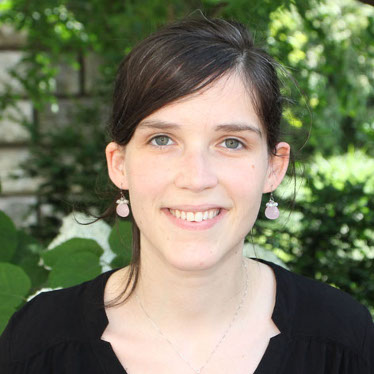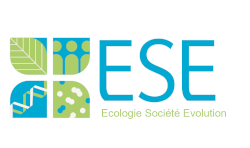
Fanny Hartmann
Position: Lecturer
Team: Evolutionary genetics and ecology
Contact details:
Laboratoire Écologie, Société et Évolution – IDEEV
Bureau 2323 Bât. 680 – 12, route 128
91190 Gif Sur Yvette
Tel: +33 (0)1 69 15 72 82
Fax: –
Email : fanny.hartmann (at) universite-paris-saclay.fr
Research interests
My main research interest consists in studying evolutionary processes and genetic mechanisms underlying adaptation, genome evolution and diversity. I use fungi as model.
My current research projects consist in investigating the evolution of large regions of recombination suppression on fungal mating-type chromosomes, in particular in the Sordariales order (Ascomycota) and the role of chromosomal rearrangements, such as inversions, in adaptive processes, such as host specialization of fungal plant pathogens.
Teaching
L1, L2 & L3 : Algorithmics (Python programming) – Bioinformatics – Botany – Ecology – Evolutionary Biology – Population Genetics
Master :Evolutionary Biology – Population Genomics
Publications (selected list)
Hartmann FE, Vega RCR de la, Demené A, Badet T, Vernadet J-P, Rougemont Q, Labat A, Snirc A, Stauber L, Croll D, et al. 2025. An inversion polymorphism under balancing selection, involving giant mobile elements, in an invasive fungal pathogen. Molecular Biology and Evolution. msaf026, https://doi.org/10.1093/molbev/msaf026
Vittorelli N., Rodriguez de la Vega R. C., Snirc A., Levert E., Gautier V., Lalanne C., De Filippo E., Gladieux P., Guillou S., Zhang Y., Tejomurthula S., Grigoriev I.V., Debuchy R., Silar P., Giraud T., Hartmann F.E. 2023. Stepwise recombination suppression around the mating-type locus in an ascomycete fungus with self-fertile spores (Ascomycota, Sordariales). PLoS Genet 19(2): e1010347.
Hartmann F.E. 2022. Using structural variants to understand the ecological and evolutionary dynamics of fungal plant pathogens. New Phytol. 234:43–49.
Hartmann F.E., Ament-Velásquez S.L., Vogan A.A., Gautier V., Le Prieur S., Berramdane M., Snirc A., Johannesson H., Grognet P., Malagnac F., Silar P., Giraud T. 2021. Size variation of the non-recombining region on the mating-type chromosomes in the fungal Podospora anserina species complex. Molecular Biology and Evolution. msab040, https://doi.org/10.1093/molbev/msab040
Hartmann F.E., Duhamel M., Carpentier F., Hood M.E., Foulongne-Oriol M., Silar P., Malagnac F., Grognet P., Giraud T. 2021. Recombination suppression and evolutionary strata around mating-type loci in fungi: documenting patterns and understanding evolutionary and proximate causes. New Phytologist Tansley review 229(5) 2470-2491
Hartmann F.E., Croll D. 2017. Distinct trajectories of massive recent gene gains and losses in populations of a microbial eukaryotic pathogen. Molecular Biology and Evolution. 34:11. doi:10.1093/molbev/msx208
Hartmann F.E., Sánchez-Vallet A., McDonald B.A., Croll D. 2017. A fungal wheat pathogen evolved host specialization by extensive chromosomal rearrangements. The ISME Journal. 11:1189–1204. doi:10.1038/ismej.2016.196
